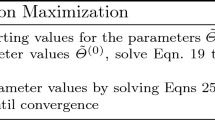Abstract
With the rapid growth of personal loan applications, credit risk assessment has become very crucial both in academic and industrial domain. Research literatures show that besides “hard” information, such as individual socio-demographic information and loan application information, “soft” information such as social relationships of the borrowers is a key factor to the credit risk assessment as social capital. In social networks, a user’s position and its influence are affected not only by the direct relationships (its friends) but also the indirect relationships (friends’ friends). A user’s importance and influence in his communities are attractive and valuable for credit assessment. But due to data deficiency in real life, social relationships are rarely considered in lending markets. By leveraging data from various sources, we proposed a social relationship enhanced credit risk assessment system, by building a social network from users’ geolocation data, extracting social relationship features at three different levels: ego, community and global level to capture a user’s position and influence from direct relationships, community and whole network perspectives. A real-life loan granting dataset is utilized for verifying the performance of the system. The experiment results show that, by combining the conventional financial indicators along with the proposed social network features, our system outperforms benchmark methods. Novel social network features we proposed make a good contribution to the loan default prediction. The research highlights the power of social relationships in detecting the default loans.
Access this chapter
Tax calculation will be finalised at checkout
Purchases are for personal use only
Similar content being viewed by others
References
Rendle, S.: Factorization machines. In: 2010 IEEE 10th International Conference on Data Mining (ICDM), Sydney, Australia, pp. 995–1000. IEEE (2010)
Li, Z.: GBDT-SVM credit risk assessment model and empirical analysis of peer-to-peer borrowers under consideration of audit information. Open J. Bus. Manag. 06(2), 362–372 (2018)
Freedman, S., Jin, G.Z.: Do Social Networks Solve Information Problems for Peer-to-Peer Lending? Evidence from Prosper.com. Working Paper, 2008.11 (2008)
Avery, R.B., Calem, P.S., Canner, G.B.: Consumer credit scoring: do situational circumstances matter. J. Banking Finance 28(4), 835–856 (2004)
Harris, T.: Quantitative credit risk assessment using support vector machines: broad versus narrow default definitions. Expert Syst. Appl. 40(11), 4404–4413 (2013)
Liberati, C., Camillo, F.: Personal values and credit scoring: new insights in the financial prediction. J. Oper. Res. Soc. 69(12), 1994–2005 (2018)
Sinnha, A.P., Zhao, H.: Incorporating domain knowledge into data mining classifiers: an application in indirect lending. Decis. Support Syst. 46(1), 287–299 (2008)
Susterstic, M., Mramor, D., Zupan, J.: Consumer credit scoring models with limited data. Expert Syst. Appl. 36(3), 4736–4744 (2008)
Zhang, T., Zhang, W., Xu, W., Hao, H.: Multiple instance learning for credit risk assessment with transaction data. Knowl.-Based Syst. 161, 65–77 (2018)
Granovette, M.: Economic action and social structure: the problem of embeddedness. Am. J. Sociol. 91(3), 481–510 (1985)
Lin, M.F.: Peer-to-peer lending: an empirical study. In: The 15th Americas Conference on Information Systems, AIS eLibrary, P8, San Francisco, USA (2009)
Greiner, M.E., Wang, H.: The role of social capital in people-to-people lending marketplaces. In: International Conference on Information Systems, DBLP (2009)
Lin, M.F., Prabhala, N., Viswanathan, S.: Judging borrowers by the company they keep: friendship networks and information asymmetry in online peer-to-peer lending. Soc. Sci. Electron. Publishing 59(1), 17–35 (2013)
Hanneman, R., Riddle, M.: Introduction to Social Network Methods. University of California, Publisher (2005)
Eagle, N., Pentland, A.S., Lazer, D.: Inferring friendship network structure by using mobile phone data. Proc. Nat. Acad. Sci. 106(36), 15274–15278 (2009)
Cranshaw, J., Toch, E., Hong, J., Kittur, A., Sadeh, N.: Bridging the gap between physical location and online social networks. In: Proceedings of the 12th ACM International Conference on Ubiquitous Computing, pp. 119–128. ACM (2010)
Crandall, D.J., Backstrom, L., Cosley, D., Suri, S., Huttenlocher, D., Kleinberg, J.: Inferring Social Ties from Geographic Coincidences. Proc. Nat. Acad. Sci. 107(52), 22436–22441 (2010)
Palla, G., Derényi, I., Farkas, I., Vicsek, T.: Uncovering the overlapping community structure of complex networks in nature and society. Nature 435(7043), 814–818 (2005)
Acknowledgement
We would like to acknowledge the partial financial support from Beijing Social Science Foundation (Project No. 17GLC056) and National Natural Science Foundation of China (Project No. 91546125).
Author information
Authors and Affiliations
Corresponding author
Editor information
Editors and Affiliations
Rights and permissions
Copyright information
© 2019 Springer Nature Switzerland AG
About this paper
Cite this paper
Sun, C., Deng, C., Xu, W., Su, J. (2019). A Social Relationships Enhanced Credit Risk Assessment Approach. In: Douligeris, C., Karagiannis, D., Apostolou, D. (eds) Knowledge Science, Engineering and Management. KSEM 2019. Lecture Notes in Computer Science(), vol 11775. Springer, Cham. https://doi.org/10.1007/978-3-030-29551-6_20
Download citation
DOI: https://doi.org/10.1007/978-3-030-29551-6_20
Published:
Publisher Name: Springer, Cham
Print ISBN: 978-3-030-29550-9
Online ISBN: 978-3-030-29551-6
eBook Packages: Computer ScienceComputer Science (R0)




